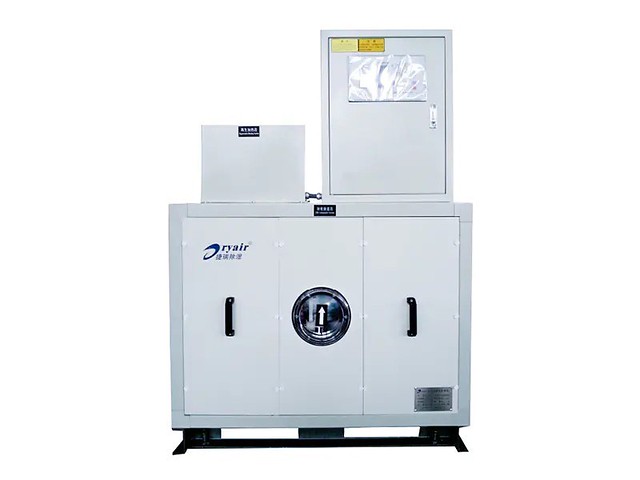Why Choose an Electric Boiler Manufacturer?
Distributor of electric hot water & steam boilers. Products include high, midrange & condensing efficiency models. Serves industrial, commercial & residential markets. Features include copper-finned heat exchanger & insulated casing.
Electrification of industrial process heating offers significant GHG emissions reduction potential. However, gaps in data on equipment characterization and facility-level energy use inhibit a comprehensive understanding of its technical potential.
Reliability
For those who are looking for a reliable boiler manufacturer, consider choosing one that has a high AFUE rating. This is a measure of how well the boiler converts energy into usable heat, and a higher AFUE rating will result in better energy efficiency and lower heating costs. Boiler brands with a high AFUE rating include Weil-McLain, Burnham, Buderus, and Williamson.
Electric boilers are known for their durability and low maintenance needs, making them a good option for businesses that require a consistent flow of hot water. They also have fewer moving parts than traditional gas boilers and do not use combustion to generate heat, which can reduce the risk of mechanical failure and prevent carbon monoxide leaks.
When choosing a manufacturer, look for a model that uses high-quality components and materials to ensure durability and longevity. Many electric boilers feature heating elements sheathed in Incoloy 800 material, which helps resist corrosion and improves the performance of the system over time. Additionally, the electric boiler manufacturer should offer a comprehensive warranty to back up their products and provide peace of mind for customers.
For commercial building owners considering an electric boiler conversion, consulting with an expert can simplify the process and ensure optimal results. An experienced specialist can assess power availability and accessibility, fit the electric boiler in existing equipment rooms, and minimize installation costs.
Energy Efficiency
Electric boilers have a lower energy consumption than traditional combustion units, so they are an excellent choice for facilities that want to reduce their carbon footprint. This is especially important in industries where fossil fuels are used for heat generation and emissions regulations are strict. Moreover, an electric boiler manufacturer can offer a wide range of models to meet the specific needs of a particular industry or facility.
In addition, electric boilers can be powered by renewable electricity. This means that they can operate without generating any carbon emissions. Moreover, this can help businesses save on fuel costs. However, this option will require significant investments in electric boiler company new technology and infrastructure. Nevertheless, the demand for eco-friendly heating solutions is surging across the world, driven by increased consumer awareness and stringent regulatory measures.
Electrification of industrial process heating presents a major opportunity to mitigate GHG emissions from the manufacturing sector. This study characterizes the technical potential of boiler electrification by examining a new dataset of manufacturing thermal energy use, which is disaggregated by county, NAICS subsector and fuel type. It is also adjusted to account for efficiency losses from combustion. In addition, the study examines the impacts of replacing current boiler fuel use with a 100% renewable electricity source, and excluding byproduct fuels from replacement in sectors where these fuels are used to generate steam (iron and steel, refinement, paper and chemicals, and food manufacturing). Using this methodology, it is estimated that electrification can eliminate GHG emissions from the current stock of conventional industrial boilers by 27% under a reference case grid and up to 19 MMmtCO2e/yr under a high-renewables scenario.
Space Saving
Electric boilers don’t need a flue to operate, which can save on installation costs and maintenance. They also don’t produce any emissions, making them an environmentally friendly choice for environmentally conscious homes. As more electricity is generated from renewable sources, this can further reduce the carbon footprint of an electric boiler.
Industrial steam is vital for a variety of manufacturing applications, from sterilization to textile processing. Stringent sterilization requirements call for high-quality steam generators, which can be achieved with industrial electric boilers. They offer precise temperature control to ensure that products are sterilized thoroughly and safely.
The paper, chemicals, and food manufacturing subsectors have the highest boiler fuel use. In these sectors, and in iron and steel, blast furnace and coke oven gases make up a significant portion of boiler fuel consumption. The replacement of these byproduct fuels by electricity in these facilities would incur additional purchased electricity, disposal, and sales costs for the stranded byproducts. This complicates the feasibility of boiler electrification.
However, electricity is currently cheaper than natural gas, and the price of renewables is falling, making it a cost-effective option for many businesses. Electric boilers have lower operating costs than traditional gas boilers, and they can be used on off-peak tariffs to further reduce energy waste. The life expectancy of an electric boiler is also longer than that of a traditional gas boiler, which can be an important consideration for business owners considering a switch to an all-electric system.
Maintenance
Although electric boilers require less maintenance than oil or gas heat pump water heater tankless boilers, they still have to be maintained in order to operate efficiently. Performing regular inspections and maintaining a well-planned service schedule can help ensure that your boilers are in good working condition. These steps can help to reduce energy bills, extend the lifespan of the equipment, and minimize downtime.
Keeping the combustion chamber clean and free of debris can improve heat transfer efficiency. It can also prevent fuel leaks and fires. During regular maintenance, check the burners and electrical connections for any signs of corrosion. In addition, it’s important to keep an eye on the pressure in the system and to maintain a proper water level.
Regular inspections can also detect faulty connections or problems with the control panel. They can help you avoid damage caused by lime scale build-up, and they can reduce the risk of fires and explosions in your facility. It’s also important to inspect the wiring and bending space regularly.
Efficient maintenance can also reduce emissions of greenhouse gases and pollutants, helping to reduce environmental impact. It can also reduce the amount of waste materials generated by the boiler, and it can help to conserve natural resources by minimizing water consumption. Moreover, it can help to integrate renewable energy sources into your boiler system, reducing reliance on fossil fuels.


